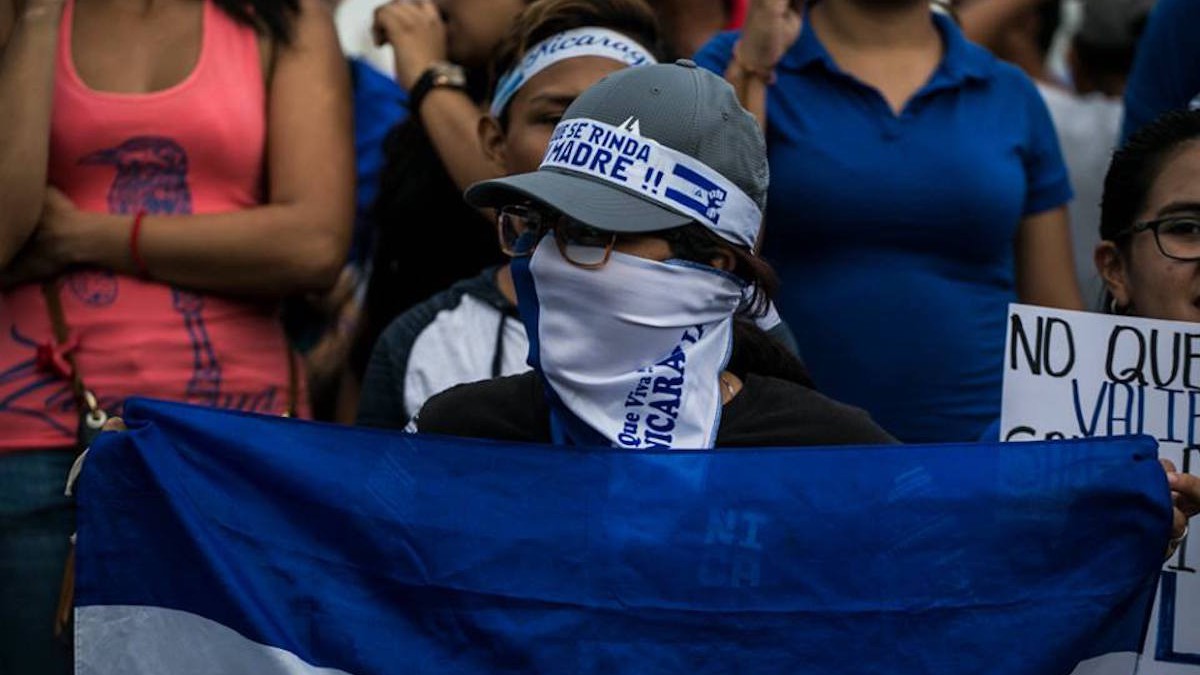The left in Canada and the U.S. is increasingly divided on the question of how best to express solidarity with the Global South. When it comes to journalism, the question relates to whose voices we include and when we do so.
Some on the left think we should seek to show solidarity primarily with people struggling against austerity and authoritarianism. This perspective is often informed by direct relationships with people who are part of grassroots movements, or it is expressed by politically engaged members of diaspora communities.
Others say the left should focus on showing solidarity with governments led by leftist parties. Historically, this perspective has been called campist, because it divides the world into “imperialist” and “anti-imperialist” camps. Its boosters insist the world’s problems, no matter how big or small, are caused primarily by U.S. government interference, with Canada as a junior partner, and that left solidarity must be oriented first and foremost against U.S. imperialism.
But showing solidarity with states often means positioning participants in Indigenous, student, feminist, and popular movements abroad as pawns of Washington who are destabilizing their governments instead of as participants in protests against their own government’s repression or policies of extraction and austerity. This means ignoring the material conditions and the injustices that cause people to take to the streets.
It makes social movements and collective subjects invisible, which means Indigenous struggles, independent trade unions, and feminist organizing fall from view.
In Latin America, there’s nowhere this approach is clearer than in regard to Nicaragua. Some activists and journalists have bent over backwards to portray the 2018 student uprising there as a coup attempt against President Daniel Ortega. It was, in the words of one Ortega supporter, “a U.S.-backed coup attempt […] another regime change operation modeled partly after the ‘color revolutions’ that we saw in Eastern Europe, Gene Sharp-style, with elements of Syria and Libya mixed-in.”
Ortega supporters refer to thousands of “quote-unquote students” who receive U.S. funding to protest their government. They also deem the killing of over 300 people – most of them students assassinated by state forces, according to Amnesty International – “fake news.” These claims rely on a broader ignorance of the Ortega government’s record and are backed up by official discourse and self-referential claims.
Events in Nicaragua since 2018 are one example of a grand narrative according to which state repression is justified as necessary for upholding left rule; popular movements are linked to funding from the National Endowment for Democracy (NED) or George Soros and written off as counter-revolutionary.
There’s no doubt that this view of world affairs is comfortable for writers from the Global North. There is no need to learn new languages, to find the resources to travel to dangerous or distant locations, or to understand complex local political, legal, and social systems. Knowing how to use Google, finding a NED grant tangentially connected to protesters, and putting it up on your blog is enough to make someone an expert with the moral authority to indict a local movement.
Campism, then, proposes that we understand the world by splitting it into blocs vying for hegemony, reducing geopolitics to a global chessboard in which powerful men (well, mostly men) face off against each other. Russia, China, and countries under their influence are considered anti-imperialist, as are governments around the world that speak from the left (however authoritarian) and use anti-U.S. discourse.
But there are multiple problems with this view. It makes social movements and collective subjects invisible, which means Indigenous struggles, independent trade unions, and feminist organizing fall from view. It also negates the possibility of popular protest against such governments and justifies as necessary the use of state violence to quell uprisings.
It is ironic that those who most ardently declare their anti-imperialism are the same who believe there’s no subjectivity except U.S. subjectivity.
Writers in the U.S. or Canada sometimes say that living in the heart of empire makes them best placed to understand and interpret the rest of the world. But to me this feels deeply colonial, as it centres the U.S. and the writer’s perspective from within it, regardless of what comrades living in the territories in question are saying is taking place.
It is ironic that those who most ardently declare their anti-imperialism are the same who believe there’s no subjectivity except U.S. subjectivity: no protest against states they deem anti-imperialist is possible without Washington’s approval, money, or agents spurring it on.
A recent investigation found that tens of millions of dollars have been funnelled into campist organizations in the United States. The impact of this funding is not yet fully understood, but it has certainly increased the resources available to boost left perspectives in support of Russia and China and of self-identified progressive governments in Latin America. Over the past decade, we have witnessed a proliferation of alternative media websites, some funded by Russia, in support of governments their contributors consider anti-imperialist. These websites rarely budge from defending the left-in-power.
It isn’t easy to listen to and engage with movements for transformation abroad. Outlets like Lausan, Briarpatch, and Mangal Media have done a great job connecting us to these struggles without overdetermining the U.S. role or undermining the legitimacy of massive, popular uprisings, from Iran to Hong Kong. This year a group of journalists and writers – myself among them – are hoping to launch a new outlet that will do the same for Latin America: Ojalá.







